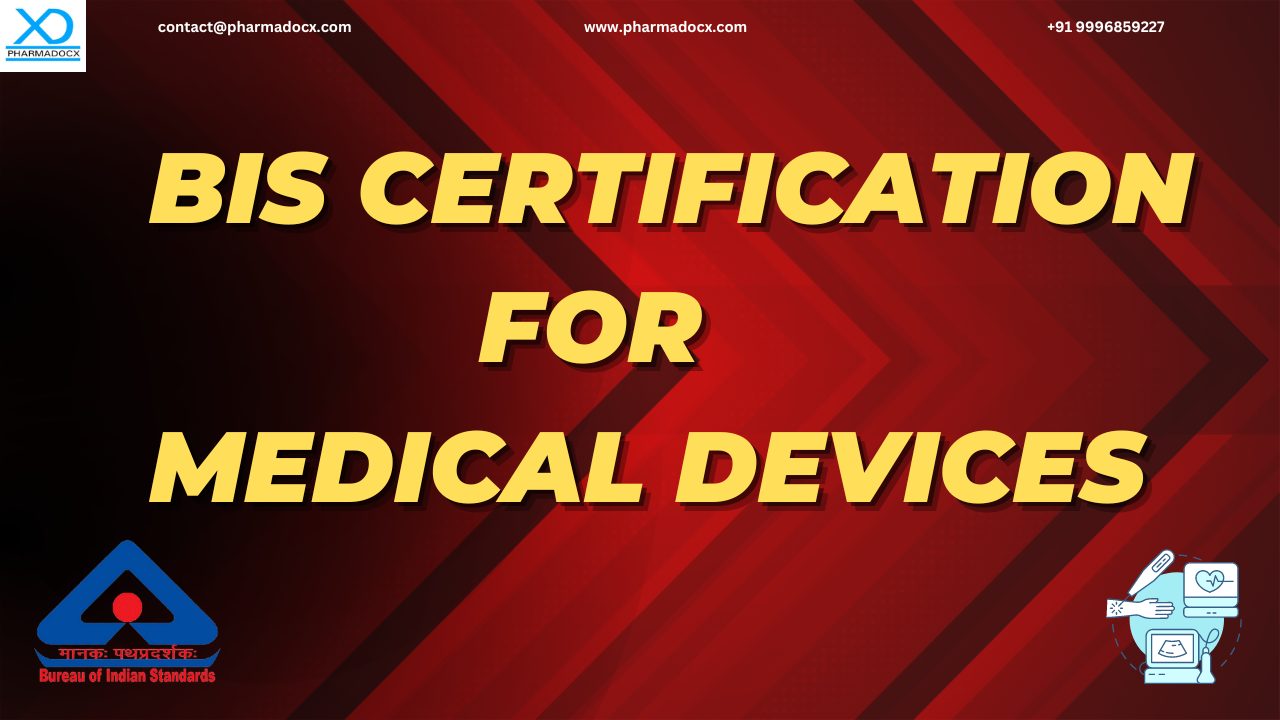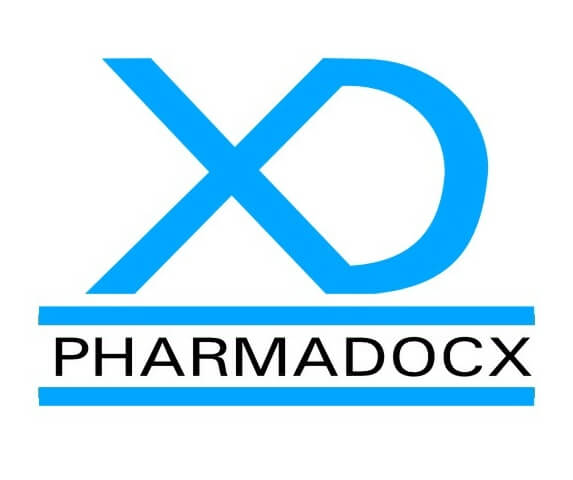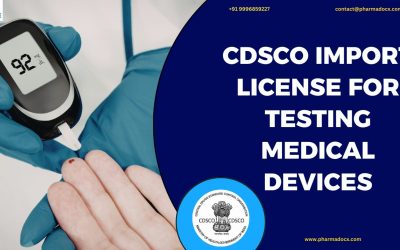India is witnessing a rise in prevalence of chronic, lifestyle, and age-related diseases. The need for advanced and affordable healthcare delivery system and government support are fueling the demand for medical devices. Thus, the Indian healthcare market is thriving. Medical devices are the basic and pivotal component of the healthcare industry. BIS standard for medical devices has laid down requirements for manufacturing high quality, effective, and safe medical devices. Medical device BIS certification assures the patients and healthcare professionals of the performance, reliability, and safety of the device.
What is BIS certification?
Bureau of Indian Standards (BIS) certification is a benchmark of safety, quality, integrity, and reliability. It is a mandatory certification for certain products in India. BIS, the national standards body of India, was established and functions under the Bureau of Indian Standards Act, 1986. The BIS regulates standards in various sectors, including services, products, and systems. It is involved in the standardization, regulation, quality certification of various products. BIS certification demonstrates quality assurance. The BIS standard mark (ISI) on a product indicates compliance with the relevant Indian standards.
What is BIS standard for medical devices?
The BIS standard for medical devices focuses on maintaining the healthcare system standards. It monitors and regulates the quality of medical devices used to deliver healthcare. The body ensures medical devices being used follow the safety requirements as per BIS authorization. The body has set standards for several medical devices used in different medical disciplines, such as orthopaedics, gynaecology, neurosurgery, cardiology, anaesthesia, radiology, ENT, ophthalmology, dentistry, etc. It has also set standards for other aspects of healthcare e.g. hospital planning, health informatics, etc. The BIS standards for medical devices can be viewed here.
As per rule 7 of Medical Device Rules 2017, medical devices should comply with the standards specified by BIS. In case no standard for a particular medical device has been specified by BIS or MoHFW, the device should comply with the International Organization for Standardization or any other pharmacopeial standard. If no standards have been specified by either body, the device should comply with the validated manufacturer’s standards.
The technical committee of BIS functions under the Medical Equipment and Hospital Planning Department (MHD). The committee oversees proper manufacturing and functioning of various medical devices. Categories, such as surgical equipment, implants, medical laboratory equipment, healthcare and treatment products, and others are usually monitored. BIS standard for medical devices has established the IS 23485 to effectively monitor the safety and performance of medical devices.
Importance of BIS certification for medical devices
BIS certification validates compliance with Indian standards. The goal is to protect consumers from buying and using unsafe and substandard products. It demonstrates the commitment of a company to Indian standards, thereby helps establish trust and credibility with customers. The BIS monitors the medical devices so that no health hazards occur due to unsafe and substandard medical devices. The role of BIS in medical device is safe and effective healthcare delivery.
The BIS has established the quality management system (QMS). The medical device BIS QMS is in place to ensure the medical device performs as intended.
Some components of the BIS QMS are as follows:
- Evaluation of medical devices intended for clinical purpose
- Evaluation of associated risk factors
- Biocompatibility verification
- Evaluation of environmental risk factors associated with medical devices
- Standardization of the safety measures being used for manufacturing medical devices
- Monitoring the production of medical devices
- Regulation and approval of electronics being used in medical devices
Advantages of BIS certification for medical devices
BIS certification for medical devices is advantageous not only for the consumers and healthcare system but also for the companies.
- With BIS certification, the need for multiple certifications can be avoided. The expenses of obtaining multiple certificates can be saved. Thus, BIS certification can help with the reduction of costs.
- The certification provides competitive advantage to medical device companies. By demonstrating their commitment to quality compliance, the company can gain customer trust and attract more customers. This certification can help companies establish a reputation for manufacturing high-quality medical devices. Thus, BIS certification can help with marketing the products easily.
- Efficient standardisation and implementation of safety measures for medical devices.
- Increase in production efficiency by complying with the guidelines of BIS standard for medical devices.
- Companies can effectively monitor the supply chain by following BIS guidelines.
- Certified medical devices usually undergo proper maintenance.
- Transparency in the manufacturing process of medical devices.
- Health hazards caused by substandard and inefficient medical devices can be avoided.
- BIS certification indicates quality assurance. The certification assures the patients and healthcare professionals that the medical device complies with Indian standards for quality and safety.
- BIS certification will provide easy access to the Indian medical device market, which is a potential global hub for medical devices. This certification can help easily obtain clearances from government agencies. The certification is accepted not only by the Indian government but also by other countries. This can help countries access other markets as well.
BIS standard for medical devices: IS 23485 Certification
BIS has released a standard specifically for medical devices, IS 23485. IS 23485 was formulated based on ISO 13485 : 2016, 16142-1 : 2016, and 16142-2:2017. This standard increases the accountability of medical device companies. IS 23485 certification focuses both on the QMS requirements and the principles of safety and performance for medical devices. By implementing IS 23485 certification, the BIS has established new standards for safety, performance, and quality of medical devices. The certification indicates compliance with the benchmark for risk evaluation and management, clinical evaluation, and bio compatibility verification for medical devices. The certification also indicates the medical devices has undergone environmental effects assessment and software validation.
Which products require mandatory BIS registration?
BIS standard for medical devices ensures the safety measures comply with Indian Standards. As per the BIS guidelines, products mentioned in the Compulsory Registration Scheme (CRS) category require registration.
What is the absolute mandatory standard for medical device industry?
The common mandatory standards are: 1) ISO 13485 regulating quality management systems for medical device manufacturers. 2) ISO 14971 regulating risk management for medical devices.
Documents needed for medical device BIS certificate
The following list provides an overview of the documents usually required:
- A copy of the test results for the medical device analysed by a BIS-authorised lab
- A copy of the manufacturing process flowchart
- A list of equipment used for testing in the manufacturing facility
- The registration address of the manufacturing facility and a copy of the registration certificate
- Trademark registration
- A copy of the utility bills
- Government authorised ID proofs
How to obtain medical device BIS certificate?
- Register or login to the online portal
- Fill in the application
- Submit the necessary supporting documents
- Submit the application and pay the required fees
- After reviewing the application and verifying necessary documents, the officials will inspect the manufacturing facility and asses the quality management. The officials may collect samples for review.
- If the requirements for the manufacturing facility and the products are satisfied, the officials will issue the certificate.
Medical devices are used to diagnose, monitor, and treat diseases or disorders. In India, there is a high demand for affordable healthcare facilities with specialised medical devices. BIS standard for medical devices provides quality, safety, and efficacy benchmark. Compliance with the regulatory requirements is mandatory to market your medical device in India. Pharmadocx Consultants will be more than happy to help you with your regulatory requirements for medical devices in India. Drop an email at [email protected] or call/Whatsapp on 9996859227 and we will simplify your regulatory journey.





